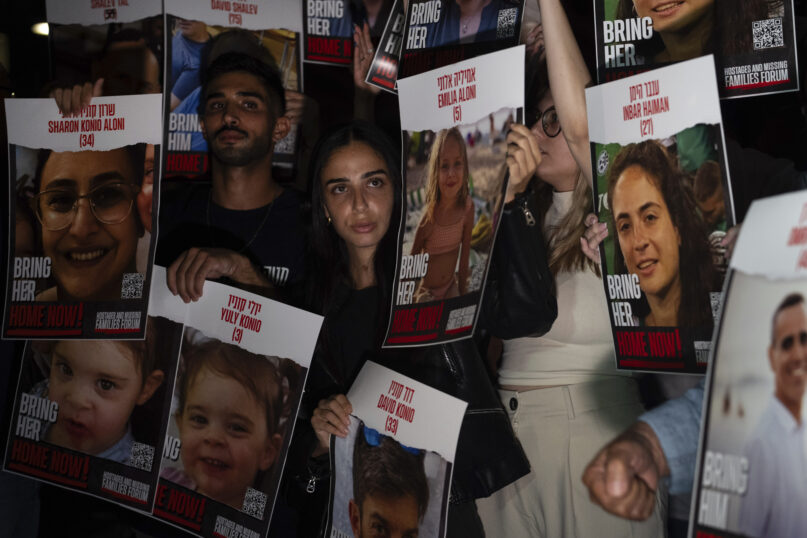(RNS) — Some of the biggest stories on the religious landscape this year saw faith communities reckon with changes in society at large, while both globally and in the United States, some of the most dramatic world events had religion at their center. A year in review:
1. Hamas attacks Israel
The brutal assault by Hamas on Oct. 7 — in which 1,200 civilians and soldiers in southern Israel were killed, including whole families, and hundreds of others were kidnapped and raped — shocked Israelis and grabbed headlines around the world. In Israel, the United States and elsewhere, many Jews gathered to share their grief and pledged money for humanitarian aid and to rebuild communities that had been devastated by the attacks.
As shocking for many Jews, however, was the outrage at Israel’s ongoing military response in Gaza, as demonstrators in New York, London and Paris, some led by left-leaning Jewish organizations, called for an immediate cease-fire, seeming to focus not on Hamas’ violence, but on Israel’s treatment of Palestinians. Some American Jews, especially those on the political left, felt betrayed by erstwhile allies and connected the protests to the rising antisemitism of recent years.
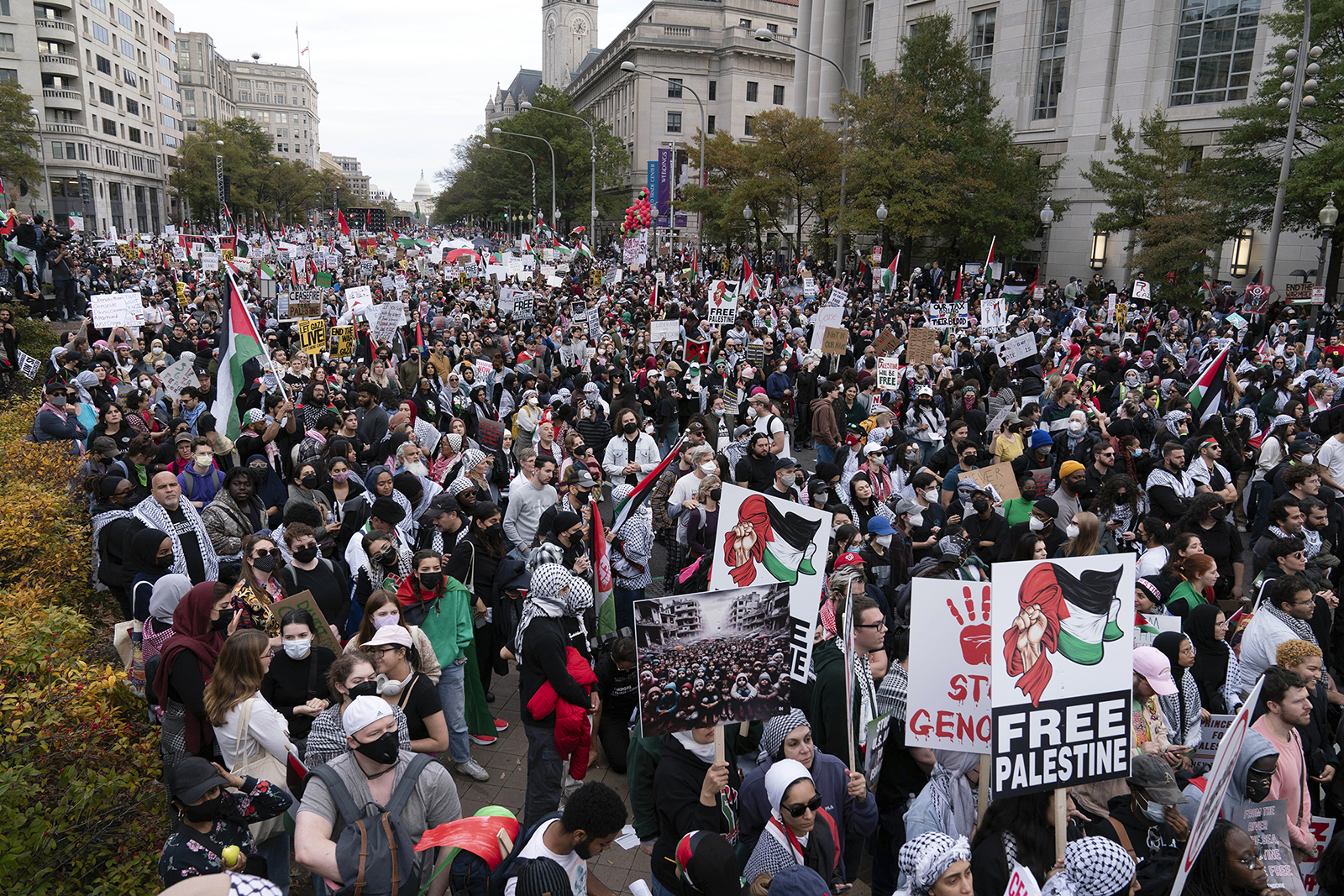
With the U.S. Capitol in the background, tens of thousands of anti-war activists rally during a pro-Palestinian demonstration asking for a cease-fire in Gaza, at the Freedom Plaza in Washington, Saturday, Nov. 4, 2023. (AP Photo/Jose Luis Magana)
Muslims, for their part, despaired at the Biden administration’s support for Israel’s bombing campaign, which to date has killed an estimated 30,000 Palestinians in Gaza, and at anti-Muslim attacks, including the killing of a young Chicago boy. While many Palestinian Christians have also felt abandoned by their counterparts in the West, a number of prominent Christian groups and denominations, including the pope, have called for a cease-fire. In the U.S. Congress, the war fed into the ripcurrents of American politics, dividing Democrats and prompting a censure for Michigan Rep. Rashida Tlaib, a Palestinian American, for her use of the pro-Palestinian slogan “from the river to the sea.”
2. Pope Francis debuts synodal Catholicism
On Jan. 5, Pope Francis presided over the funeral Mass of his predecessor, Pope Benedict XVI, showing outward signs of continuity as he preached unity in the church. But after a decade as pope, Francis took definite steps this year toward implementing the vision for the church he has been outlining for a decade.
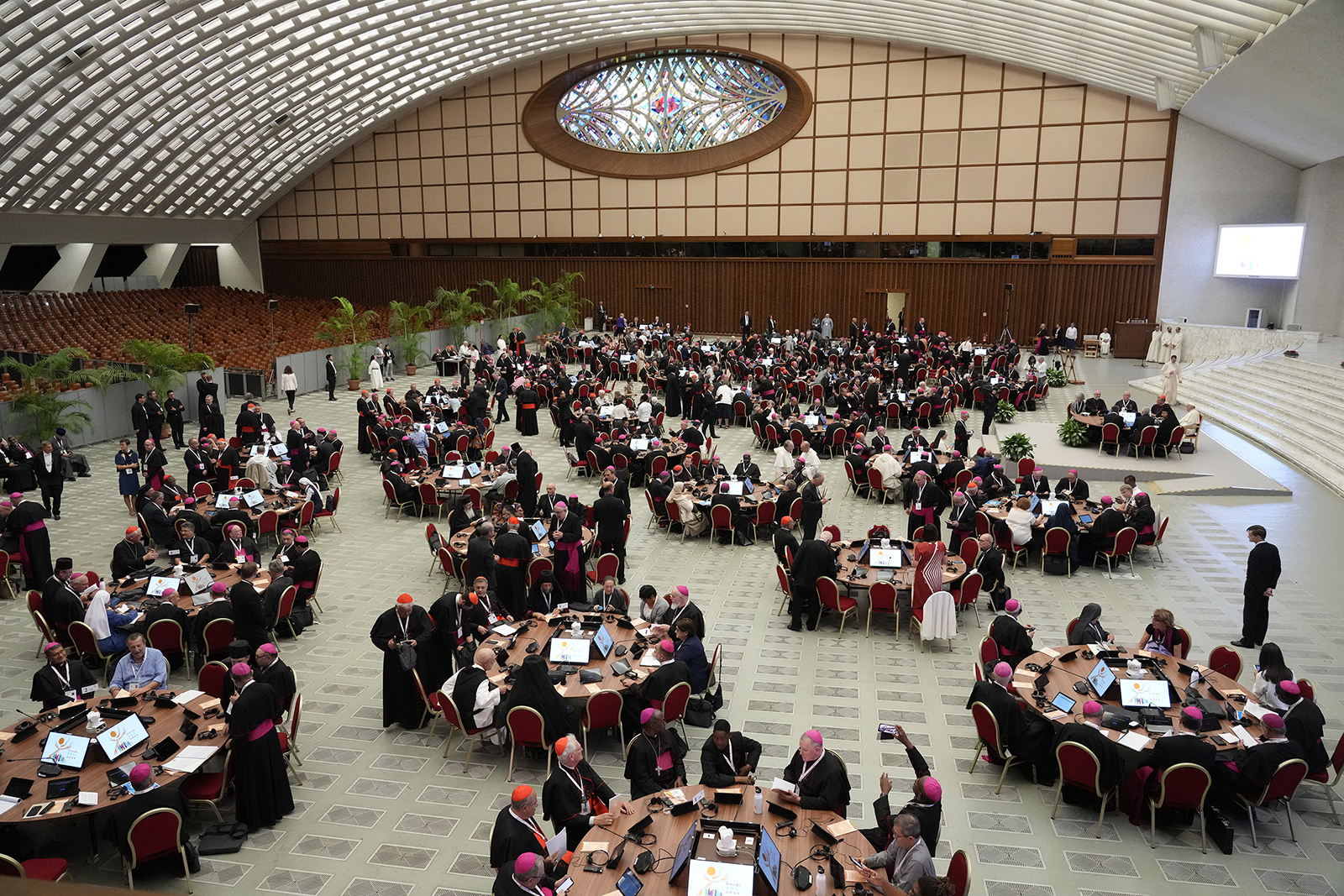
FILE – Pope Francis, sitting at right, participates in the opening session of the 16th General Assembly of the Synod of Bishops in the Paul VI Hall at the Vatican, Wednesday, Oct. 4, 2023. Pope Francis convened a global gathering of bishops and laypeople to discuss the future of the Catholic Church, including some hot-button issues that have previously been considered off the table for discussion. Key agenda items included women’s role in the church, welcoming LGBTQ+ Catholics, and how bishops exercise authority. (AP Photo/Gregorio Borgia)
The catalyst was the Synod on Synodality, Francis’ project to introduce dialogue with the laity into church governance. The October gathering of bishops, clergy and laity discussed the pressing issues brought up by Catholics around the globe: LGBTQ inclusion, the role of women in the church and the persistent problem of sexual abuse. In November, Francis showed he would take its recommendations seriously: With his approval, the Vatican department that oversees doctrine said transgender Catholics can be baptized and serve as godparents. The following month, it declared that priests could bless same-sex couples.
Francis also moved decisively against his detractors, chastising, investigating and eventually dismissing the conservative Texas Bishop Joseph Strickland and removing Cardinal Raymond Burke from his Vatican living quarters, a month after Burke piled contempt on the synod.
3. Mike Johnson elected speaker of the House
Much has been made of the political power of evangelical Christians, from their alignment with the Reagan-era Moral Majority to Donald Trump’s semi-official Evangelical Advisory Board. But with October’s election of Louisiana Rep. Mike Johnson, a conservative evangelical, as speaker of the House, the faction’s political influence in Washington reached its apex so far.
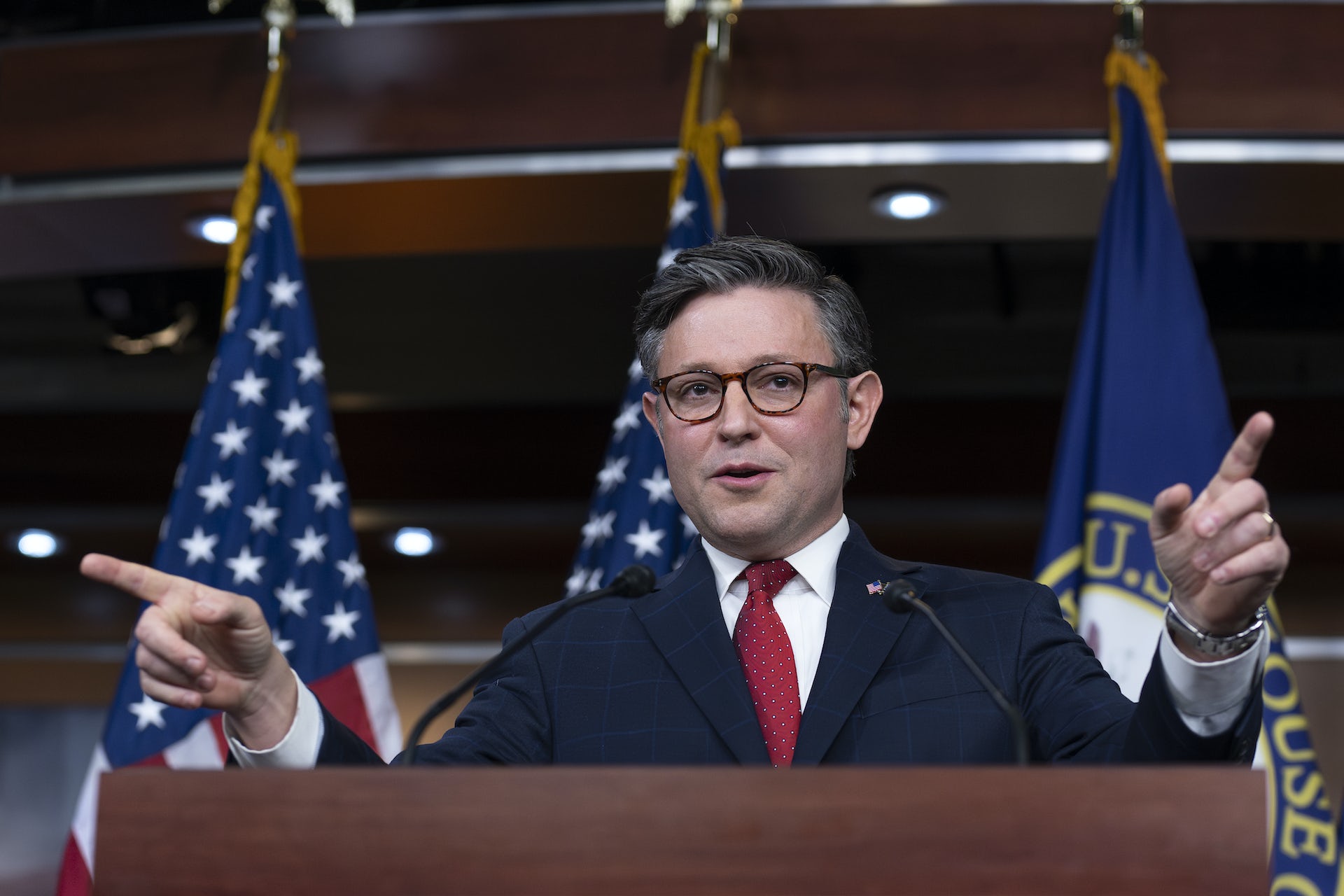
Speaker of the House Mike Johnson takes questions from reporters at the Capitol in Washington on Nov. 14, 2023. (AP Photo/J. Scott Applewhite)
Nevermind that Johnson was a compromise candidate selected after three other prospective speakers were dismissed — even with the GOP’s slim majority, Johnson arguably has more direct power over U.S. policy and spending than any evangelical figure before him.
Deeply rooted in evangelical culture, Johnson worked as a lawyer for the Alliance Defense Fund, now known as Alliance Defending Freedom, the conservative Christian legal group that helped defend the Mississippi abortion law in the case that overturned Roe v. Wade as well as the Colorado baker in the Masterpiece Cake Shop case.
Johnson is unabashed about expressing his faith in political contexts, telling the House in his first speech as speaker, “I believe that Scripture, the Bible, is very clear: that God is the one who raises up those in authority.”
4. The SBC expels key churches over women pastors
“Joining the Southern Baptist Convention has historically been relatively easy,” RNS reporter Bob Smietana observed in February. “Getting kicked out was difficult.”
That has changed.
In June, delegates to the SBC’s annual meeting affirmed a decision by the denomination’s Executive Committee to expel two churches for employing women as pastors. The longtime pastors of both churches — one of them Rick Warren, a bestselling author and one of the country’s most prominent pastors — addressed the meeting, asking to be allowed to stay.
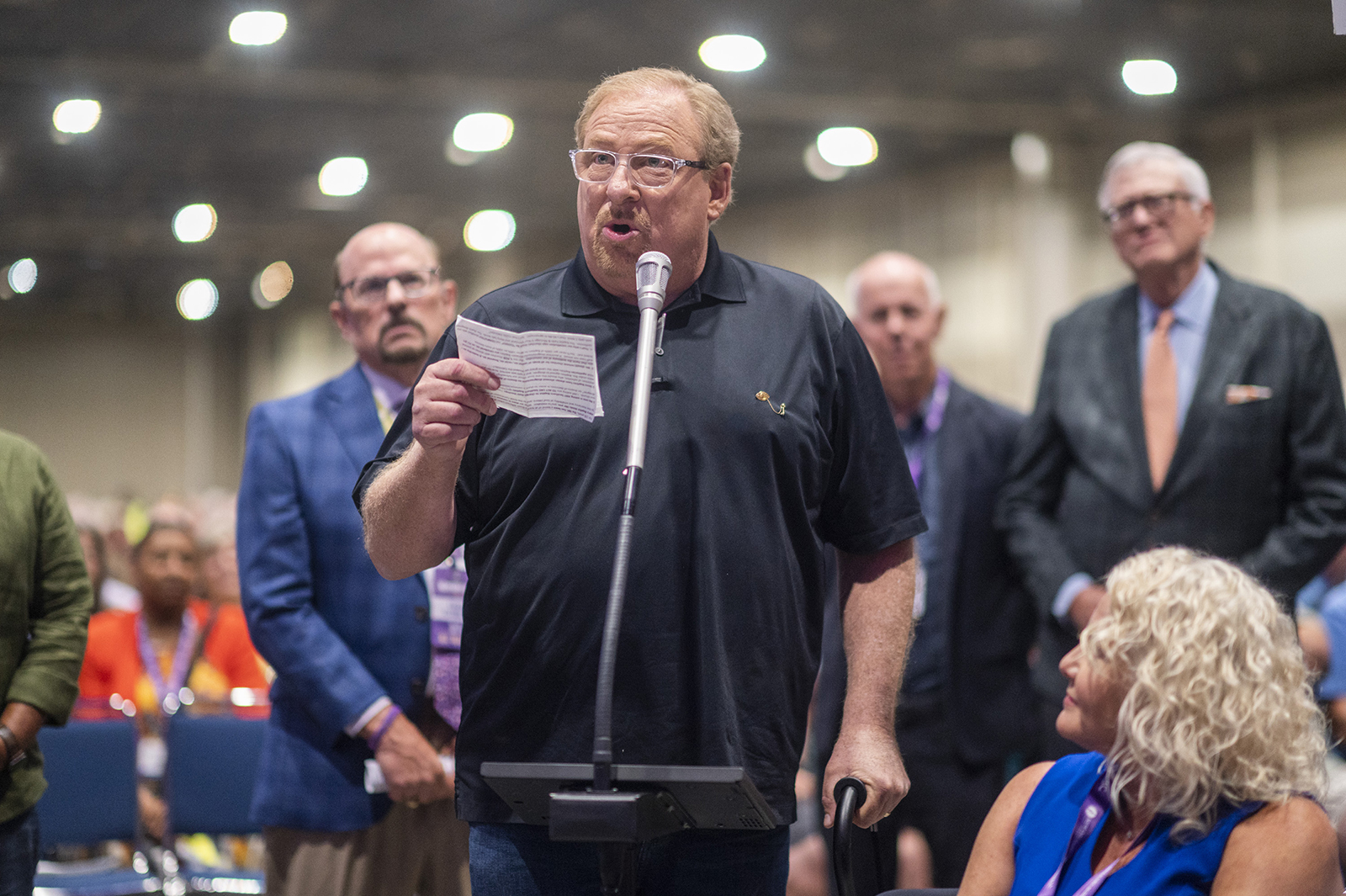
Former pastor Rick Warren makes an impassioned plea for reinstatement of Saddleback Church at the Southern Baptist Convention annual meeting at the Ernest N. Morial Convention Center in New Orleans, La., on June 13, 2023. (RNS photo/Emily Kask)
“We lost,” Warren said, in summing up the 9,437 to 1,212 vote.
This was the first time the ban on women pastors, added to the Baptist Faith and Message in 2000, was used to “disfellowship” a church and was a sign to many, including Warren, of a growing centralization in the SBC, which has long operated as a loose association held together by its mission fund more than doctrine.
“I’m not asking you to agree with my church,” Warren said at the meeting. “I am asking you to act like a Southern Baptist, who have historically agreed to disagree on dozens of doctrines in order to share a common mission.”
5. California rejects a bill to outlaw caste discrimination
When California Gov. Gavin Newsom in October vetoed legislation that would have made caste discrimination explicitly illegal in the state, he ended — for now — a debate that had raged since February, when state Sen. Aisha Wahab introduced Senate Bill 403, eliciting fierce opposition from some Hindus and clamorous approval from others.
Those opposed claimed SB 403 would single out Hindus and their faith as biased. Supporters said it would recognize a fact of everyday life for members of the lowest caste, or Dalits.
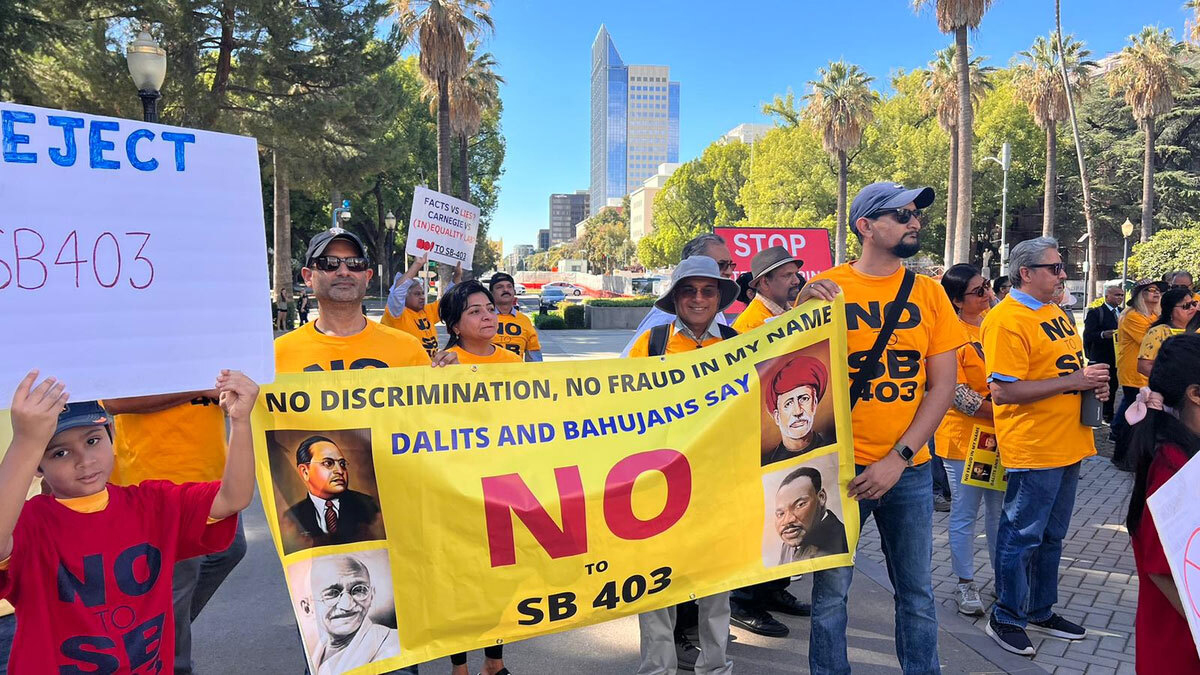
People demonstrate against Senate Bill 403 during a rally near the California state Capitol in Sacramento, Sept. 9, 2023. (Photo courtesy of Sangeetha Shankar/HAF)
The debate over the bill exposed polarization among American Hindus that at times echoes the clashes between Indian Prime Minister Narendra Modi’s Hindu nationalist regime and his critics. But combined with the candidacy of GOP presidential hopeful Vivek Ramaswamy, 2023 may be remembered as the year Hindu Americans came of age politically.
“SB-403 forced our community to find its voice,” said Suhag Shukla, executive director of the Hindu American Foundation, which led the opposition to the bill.
Sarita Sagar, deputy director of Equality Labs, a Dalit rights group, noted the controversy had gained their cause essential visibility. “With the caste equity movement being flanked by so many civil rights leaders, we will play an even bigger role in the future of American politics and democracy.”
6. The culture war goes local
Since the Dobbs decision overturned Roe v. Wade, sending the abortion issue to the states to decide their policies individually, state legislatures have tackled a raft of other questions that have divided Americans, from transgender rights to school curricula, turning the national culture war into a series of local skirmishes.
No state has been more active in this trend than Texas, which entertained a bill requiring the Ten Commandments to be posted in every public school classroom and passed another in May allowing public schools to hire school chaplains as student counselors. Oklahoma legislators, meanwhile, voted in June to approve St. Isidore of Seville Virtual Charter School, a publicly funded Catholic K-12 school.
Other states focused on banning accommodations for LGBTQ people. Missouri led the charge, with the state’s House at one point considering 27 such bills, including measures restricting transgender girls’ participation in school sports and limiting gender-transition procedures for young people. Most of these bills, some of which popped up in multiple states with identical names, have stalled or been killed outright.
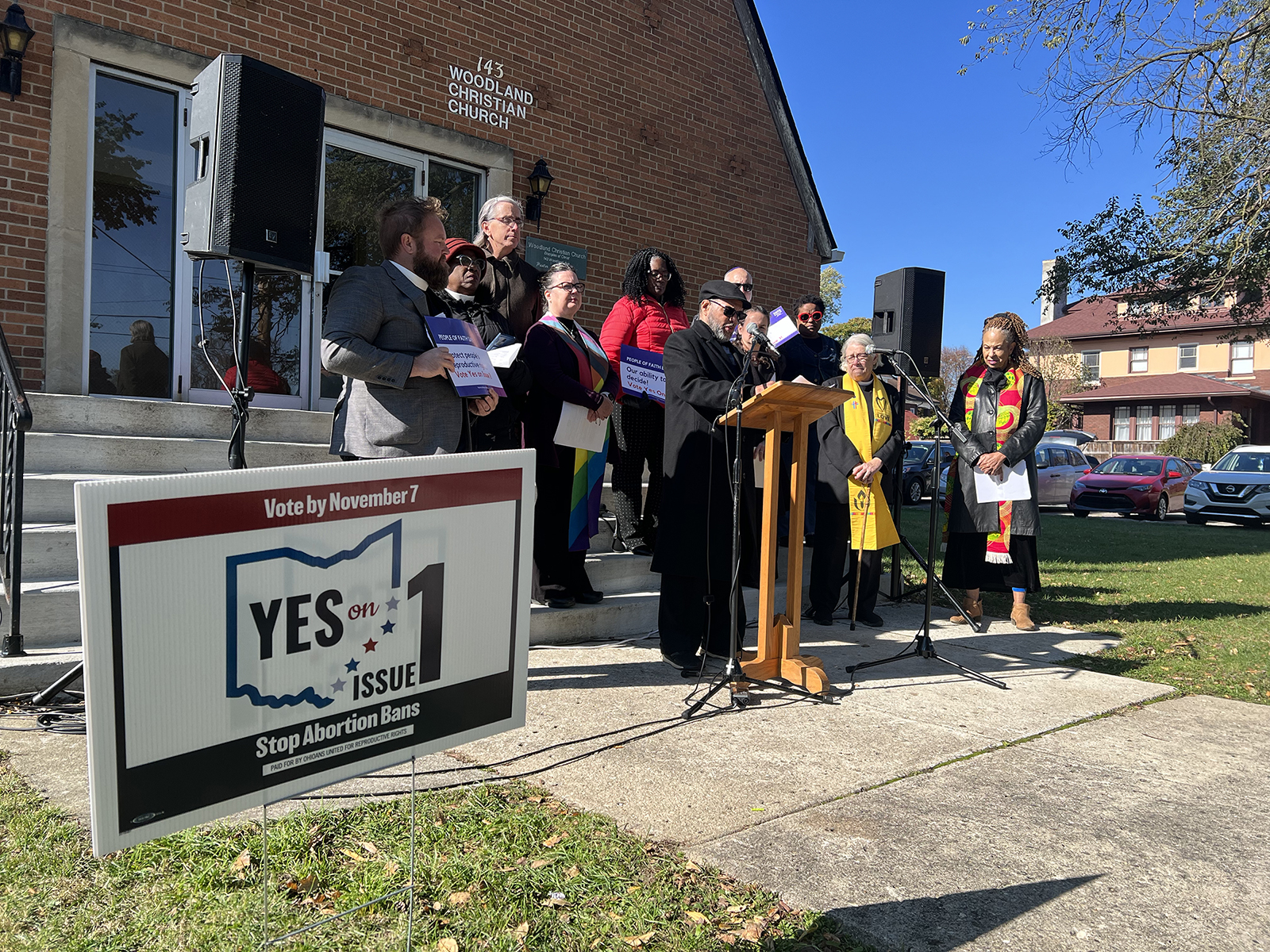
The Rev. Eric Brown speaks during a press conference held by Faith in Public Life Action, Thursday, Nov. 2, 2023, at Woodland Christian Church in Columbus, Ohio. (Photo courtesy Faith in Public Life)
Some of the most trenchant debates have come at the county and city level, where school board meetings were the scenes of bitterly contested battles. In Montgomery County, Maryland, Muslim and Christian families sued their school district for the right to opt their children out of language arts curriculum that discussed LGBTQ topics. A federal judge denied their suit in a preliminary injunction.
Abortion, meanwhile, made its way to a number of state legislatures, and the fights over it rarely divided easily along religious and secular lines. In Ohio, where voters were asked in early November to weigh in on amending the state constitution to guarantee a right to abortion, mainline Protestant and Black Christian pastors mostly rallied in favor of reproductive rights, countering $1.4 million in anti-amendment spending by the state’s Catholic bishops.
Some clergy, like Rebecca Todd Peters, who has given more than 55 sermons and lectures on abortion across the country since Dobbs came down, have mounted crusades to clarify that not all religious people consider abortion wrong. Other religious groups have approached abortion rights as a religious freedom issue. At least three lawsuits have been filed by Jewish groups in Kentucky, Florida and Indiana, arguing that state abortion bans impose a Christian understanding of when life begins.
7. Churches scramble to deal with abuse
Nearly a half century after the case that spurred the Spotlight investigation in Boston, clergy sexual abuse and sexual harassment continued to bedevil religious institutions. Catholic dioceses largely dealt with the fallout of earlier abuse, while other denominations grappled with how to curb new offenses. Critics complained that church leaders showed no interest in acting with urgency.
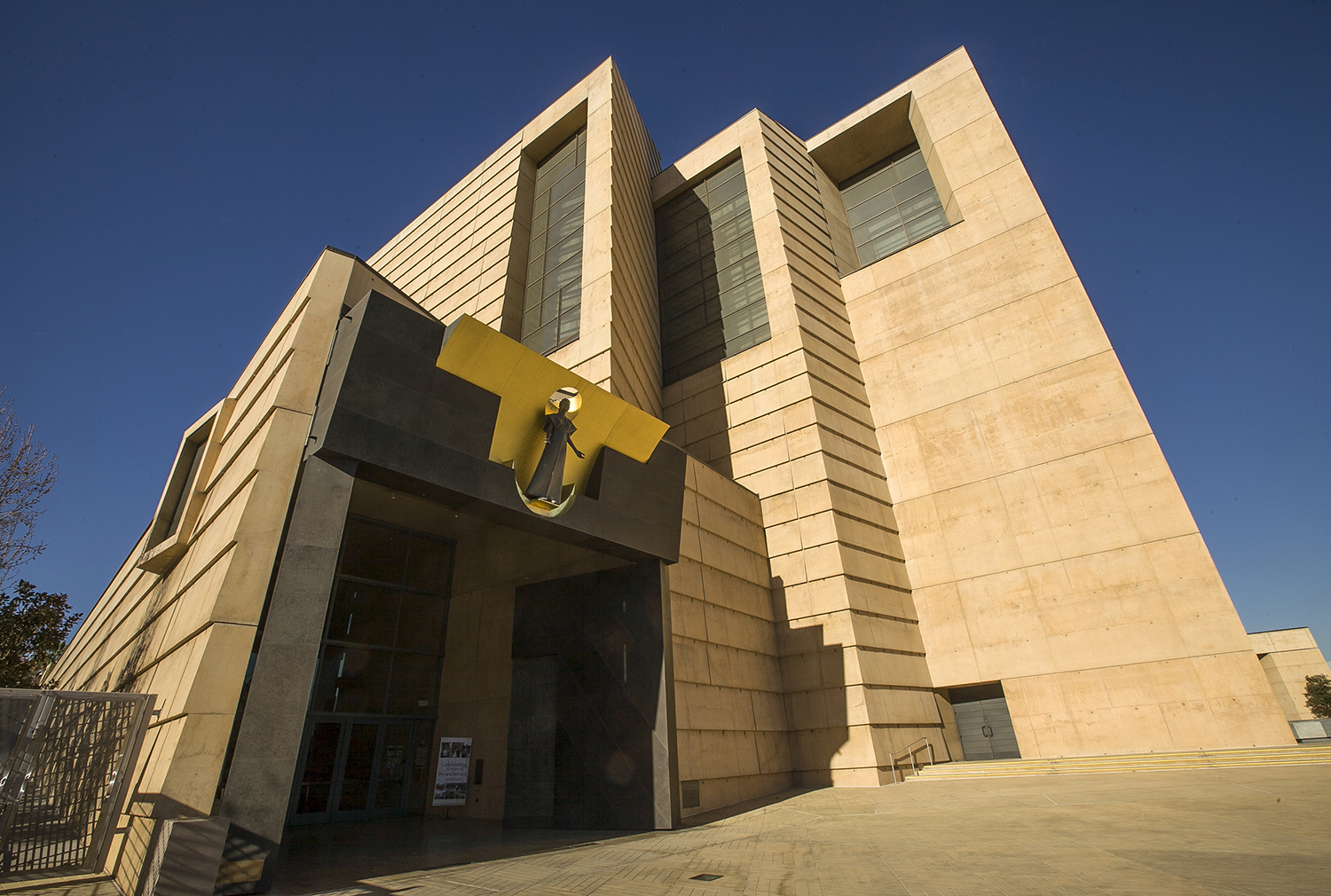
FILE – This Jan. 21, 2013 file photo shows the entrance to the Cathedral of Our Lady of the Angels, the headquarters for the Roman Catholic Archdiocese of Los Angeles. California is one of several states that have repeatedly extended the window for people to sue institutions over long-ago abuse, leading to thousands of new cases. (AP Photo/Damian Dovarganes, File)
In Maryland, the state’s attorney general released a report detailing 80 years of abuse and coverup in the Catholic Archdiocese of Baltimore alone. In California at least a third of the state’s 12 Catholic dioceses had filed for bankruptcy or were contemplating doing so to protect themselves from more than 3,000 lawsuits filed under a 2019 state law widening the window for victims to sue. Survivors’ advocates accused the dioceses of angling to avoid paying out settlements and to stifle further revelations.
In the Southern Baptist Convention, a yearslong effort to create a national hotline to report abuse by clergy came under fire from survivors. One member of the SBC abuse reform task force stepped down in February after a former president of the denomination who had been credibly accused of sexual assault was returned to active ministry. The accused pastor has since sued the SBC and an outside investigator for reporting the allegation, saying it was a private matter.
Even good-faith efforts to address the problem frustrated those demanding solutions. The Episcopal Church’s presiding bishop, Michael Curry, has ordered a review of its sexual abuse protocol after complaints that the process was too confusing, took too long and often gave bishops “a free pass on behavioral issues.” Given church bylaws, any recommendations the review yields will not be put into effect for at least six years.
8. A revival breaks out at Asbury University
It was an event so full of youthful devotion, so passionate and spontaneous that for its short life it came across as an antidote to the cynical divides that have riven American faith communities. In early February, a regular Wednesday chapel service at Asbury University, a small Christian school in Wilmore, Kentucky (pop. 6,000), ran late, as students refused to stop praying and singing.
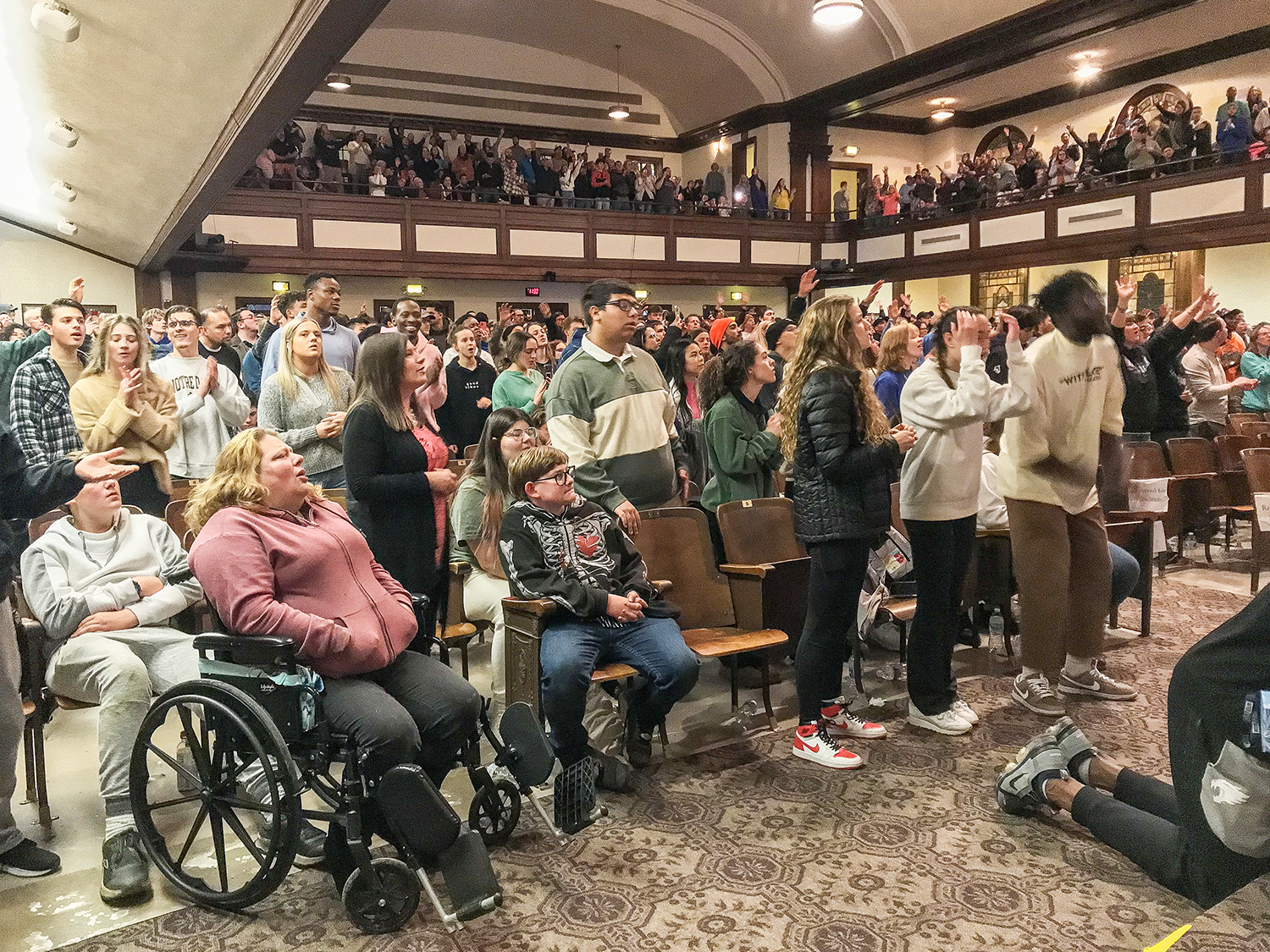
People participate in a weekslong revival inside Hughes Auditorium at Asbury University in Wilmore, Kentucky. (Photo by Fiona Morgan)
They were still going four days later, and 10 days later. “We’ve been here in Hughes Auditorium for over a hundred hours — praying, crying, worshipping and uniting — because of Love,” wrote the editor of the student newspaper.
The revival eventually drew some 50,000 young people, faculty and a few celebrity preachers vying for a spot in the limelight, egged on by a Tucker Carlson segment on Fox News. It dwindled only after beleaguered school and town officials closed campus buildings to the public and evangelist Nick Hall siphoned off much of the crowd to Rupp Arena in Lexington.
The two weeks of revival proved to many that, despite church decline and the vaunted rise of the nones, in the words of one observer, “there’s a hunger from the younger generations to seek after the Lord.”
9. An image of the prophet cancels a professor
Another campus happening, this time in St. Paul, Minnesota, captured how religion can stir the ongoing faceoff between academic freedom and cancel culture. In January, an art history instructor at Hamline University was dismissed after a student, the president of the Muslim Student Association, complained the instructor had violated Muslim bans against depicting the Prophet Muhammad by showing a 14th-century painting of the prophet in class.
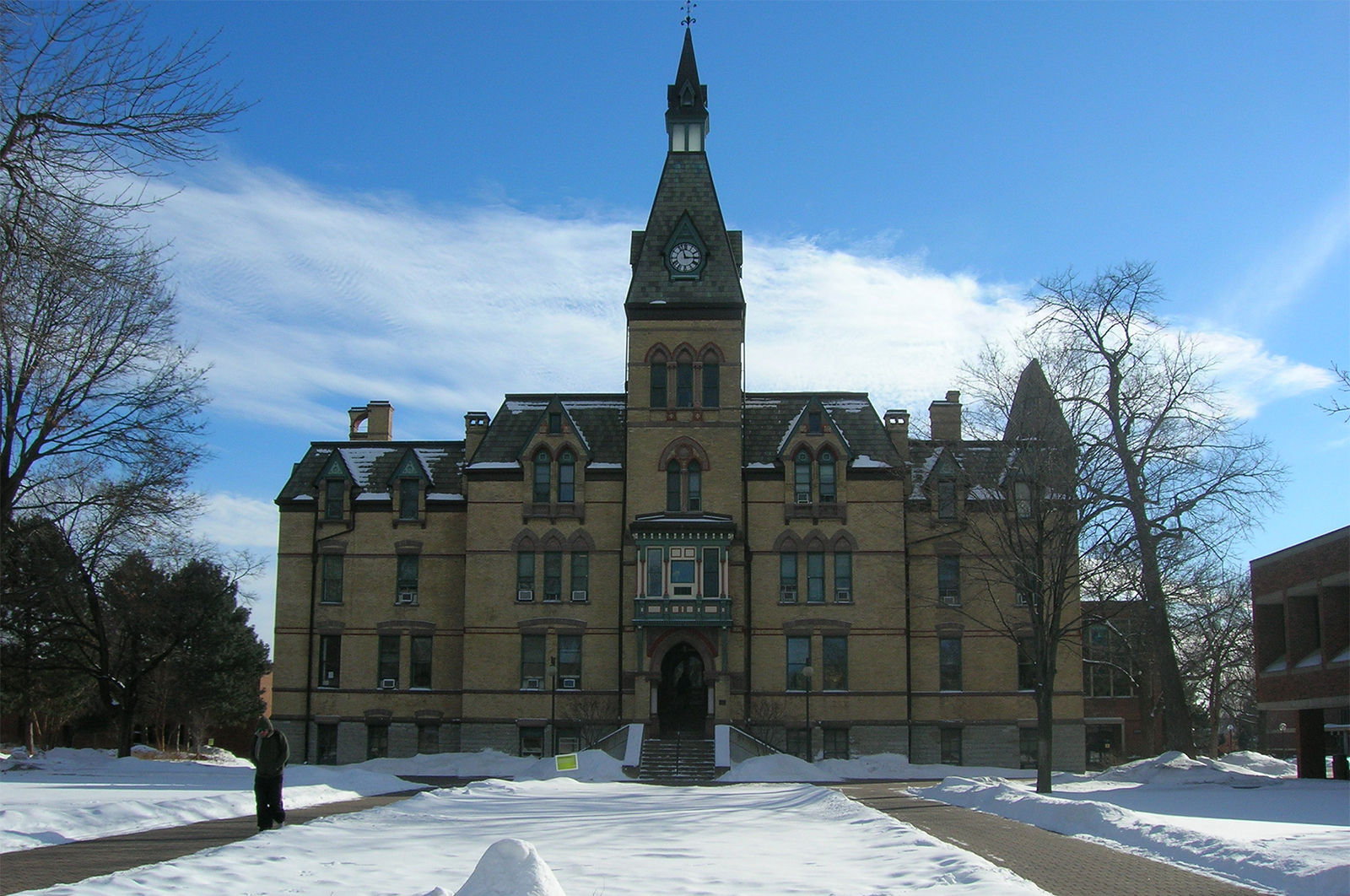
Old Main at Hamline University in St. Paul, Minnesota. (Photo by Eoin/Wikipedia/Creative Commons)
Islamic scholars elsewhere leapt to the instructor’s defense, saying that such bans are not universally held, and that, anyway, the professor had given ample warning that the image would be part of the course. The university nevertheless declined to renew her contract. Before the month was out, Hamline had clarified that respect for religious difference should not take precedence over academic freedom, but by then the professor had sued, alleging religious discrimination.
This article has been updated. An earlier version said that Alliance Defending Freedom represented Mississippi in the case that overturned Roe v. Wade at the Supreme Court. The legal group wrote the law at the center of the case and helped to devise the arguments before the Court.
